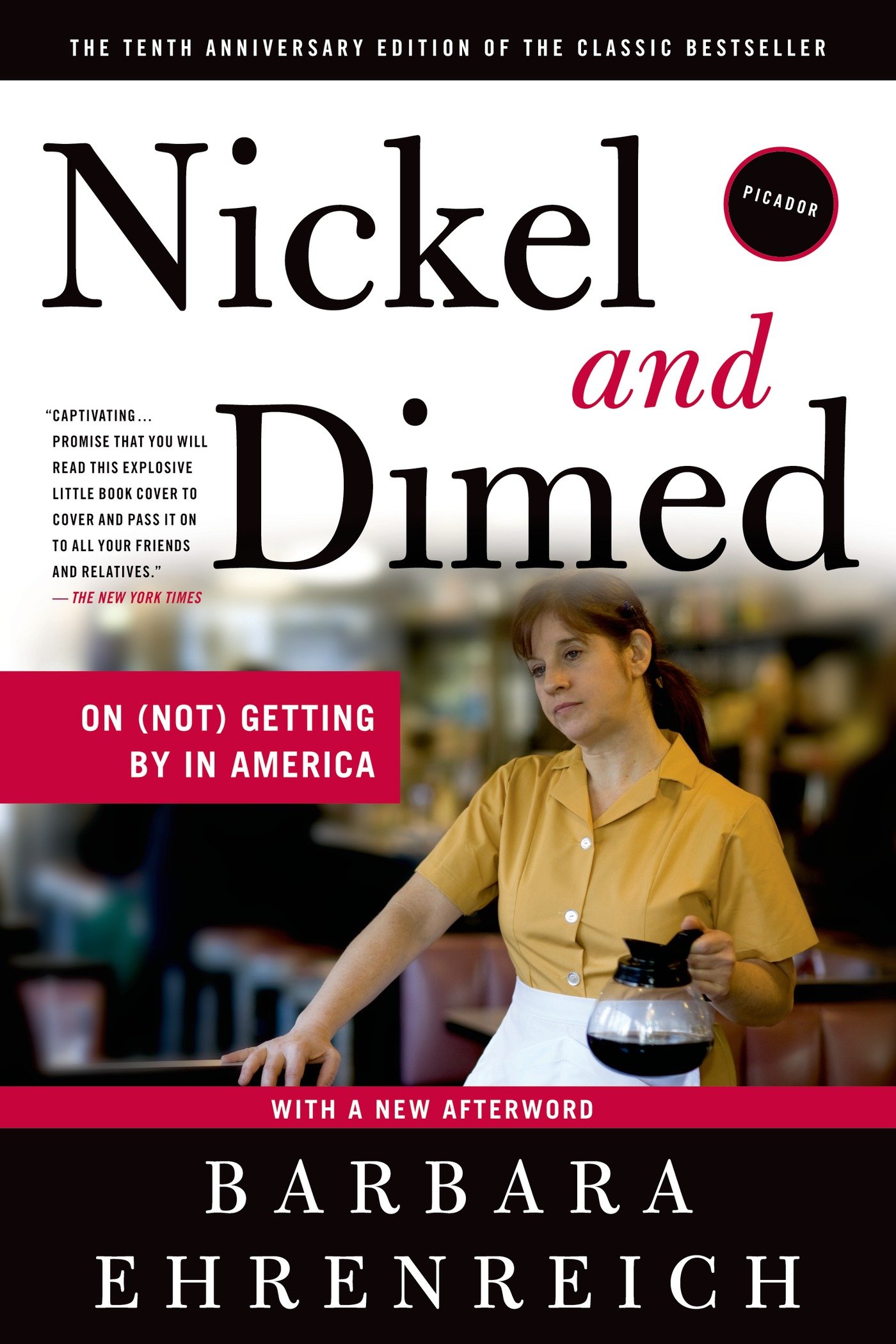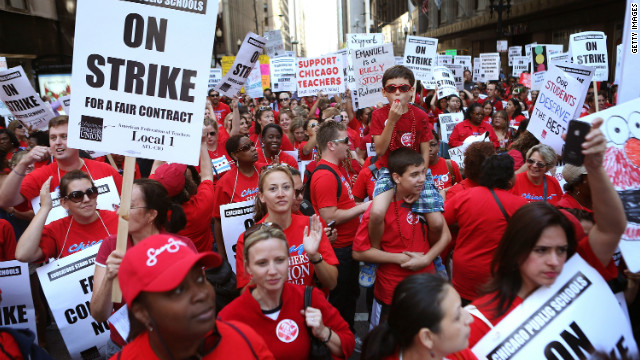 Throughout Barbara Ehrenreich's novel, Nickel and Dimed, she steps away from her life as a successful writer and devotes her life to living off of low paying jobs like waiting on the masses and refolding shirts in the women's section of the nation's largest super store.
Throughout Barbara Ehrenreich's novel, Nickel and Dimed, she steps away from her life as a successful writer and devotes her life to living off of low paying jobs like waiting on the masses and refolding shirts in the women's section of the nation's largest super store. When arriving at her afternoon shift at Walmart, Barbara grabs the daily newspaper from the overflowing garbage outside. The headline describes how the "1,450 hotel workers, members of the Hotel Employees and Restaurant Employees Union, strike nine local hotels. A business writer in the Pioneer Press, [comments] on this plus a Teamsters' striking at the Pepsi-Cola bottling plant and a march by workers demanding union recognition at a St. Pail meatpacking plant (187). This seems to light a fire in Ehrenreich's heart and she expresses her feelings toward starting a union with her fellow employees. Similar to before at her maid job, she feels an initiative to stand up for the other voiceless workers, but in this case, she is not the first to do so. After this headline is when she starts expressing her opinion once more to those who would listen, and saw that many felt the same way that she did. Everyone seemed to want higher wages, more reasonable break times, and more voice with their superiors who they lived in fear of, even if they were thirty years younger then them. When Barbara confronted her boss when she worked at The Maids, she was able to get a raise and ensure that her injured friend continued to get paid after hurting her ankle while on the job. When she tells her friend Melissa that she is planning on quitting their Walmart job, Melissa felt the same way and planned on applying for a job at a local factory for higher wages. Even the news report of strikes and unions made another coworker of hers ecstatic in the break room and even swore from excitement, breaking one of the major rules of the job.
When arriving at her afternoon shift at Walmart, Barbara grabs the daily newspaper from the overflowing garbage outside. The headline describes how the "1,450 hotel workers, members of the Hotel Employees and Restaurant Employees Union, strike nine local hotels. A business writer in the Pioneer Press, [comments] on this plus a Teamsters' striking at the Pepsi-Cola bottling plant and a march by workers demanding union recognition at a St. Pail meatpacking plant (187). This seems to light a fire in Ehrenreich's heart and she expresses her feelings toward starting a union with her fellow employees. Similar to before at her maid job, she feels an initiative to stand up for the other voiceless workers, but in this case, she is not the first to do so. After this headline is when she starts expressing her opinion once more to those who would listen, and saw that many felt the same way that she did. Everyone seemed to want higher wages, more reasonable break times, and more voice with their superiors who they lived in fear of, even if they were thirty years younger then them. When Barbara confronted her boss when she worked at The Maids, she was able to get a raise and ensure that her injured friend continued to get paid after hurting her ankle while on the job. When she tells her friend Melissa that she is planning on quitting their Walmart job, Melissa felt the same way and planned on applying for a job at a local factory for higher wages. Even the news report of strikes and unions made another coworker of hers ecstatic in the break room and even swore from excitement, breaking one of the major rules of the job.
No comments:
Post a Comment